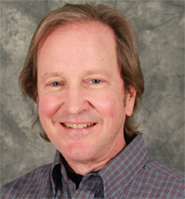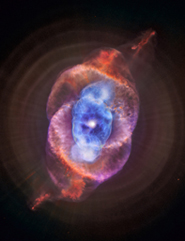22nd Annual Great Lecture in Astronomy
PUBLIC LECTURE
Small Stars in a Large Context
Dr. Don Winget
Harlan J. Smith Centennial Professor in Astronomy
The University of Texas at Austin
Saturday, February 22, 2014 · 1-2 PM
POB 2.302 · Avaya Auditorium [map]
The University of Texas at Austin
abstract
White dwarf stars, dubbed "Impossible Stars" by Eddington, are the simplest stars with the simplest surface chemical compositions known. We will examine the potential offered by the white dwarf stars in the context of both astrophysics and fundamental physics. This potential includes studying cosmochronology - establishing the age and evolutionary history of our galaxy and an independent lower limit on the age of the universe, constraining the properties of axions and WIMPS in the context of dark matter models, constraining dark energy by establishing the properties of the massive progenitors of type Ia supernovae, studying nucleosynthesis from their internal composition structure, and crystallization in dense Coulomb plasmas, among many others.
At the dedication of McDonald Observatory on May 5th, 1939, research into white dwarf stars was commissioned with the following statement, "One of the first tasks to be undertaken by the staff of the McDonald Observatory will be to investigate further the mysteries of the white dwarfs." McDonald Observatory leads in investigating these stars from discoveries at the telescope coupled with theoretical calculations to, most recently, the laboratory. This latter has moved astronomy into the realm of experimental science. We are now able to make macroscopic quantities of star-stuff in the lab: plasmas created under conditions that are the same as the plasmas in stars. We can now examine, on Earth, matter under more cosmically "normal" conditions. We will discuss how this came about, the technology behind it, recent results, and the potential impact of our recent laboratory experiments done at Sandia National Laboratories on Z, the most powerful x-ray source on Earth. After 75 years, McDonald Observatory continues to widen its world leadership in this challenging field.
The Speaker
Dr. Don Winget is a member of The University of Texas at Austin Academy of Distinguished Teachers. Don studies white dwarf stars, using them to study all different kinds of things. These include the physics of matter at high temperatures and densities, as well as the structure of galaxies and the evolution of star populations in galaxies. He even looks for planets orbiting white dwarf stars, which would be the remnants of solar systems like our own after our Sun had died. Don has won many awards for his teaching at The University of Texas, as well as several prizes for his scientific work and he says McDonald Observatory is his "favorite spot on this Earth."
Sponsored by The University of Texas at Austin McDonald Observatory and Department of Astronomy Board of Visitors

Dr. Don Winget

Cat's Eye [STScI]